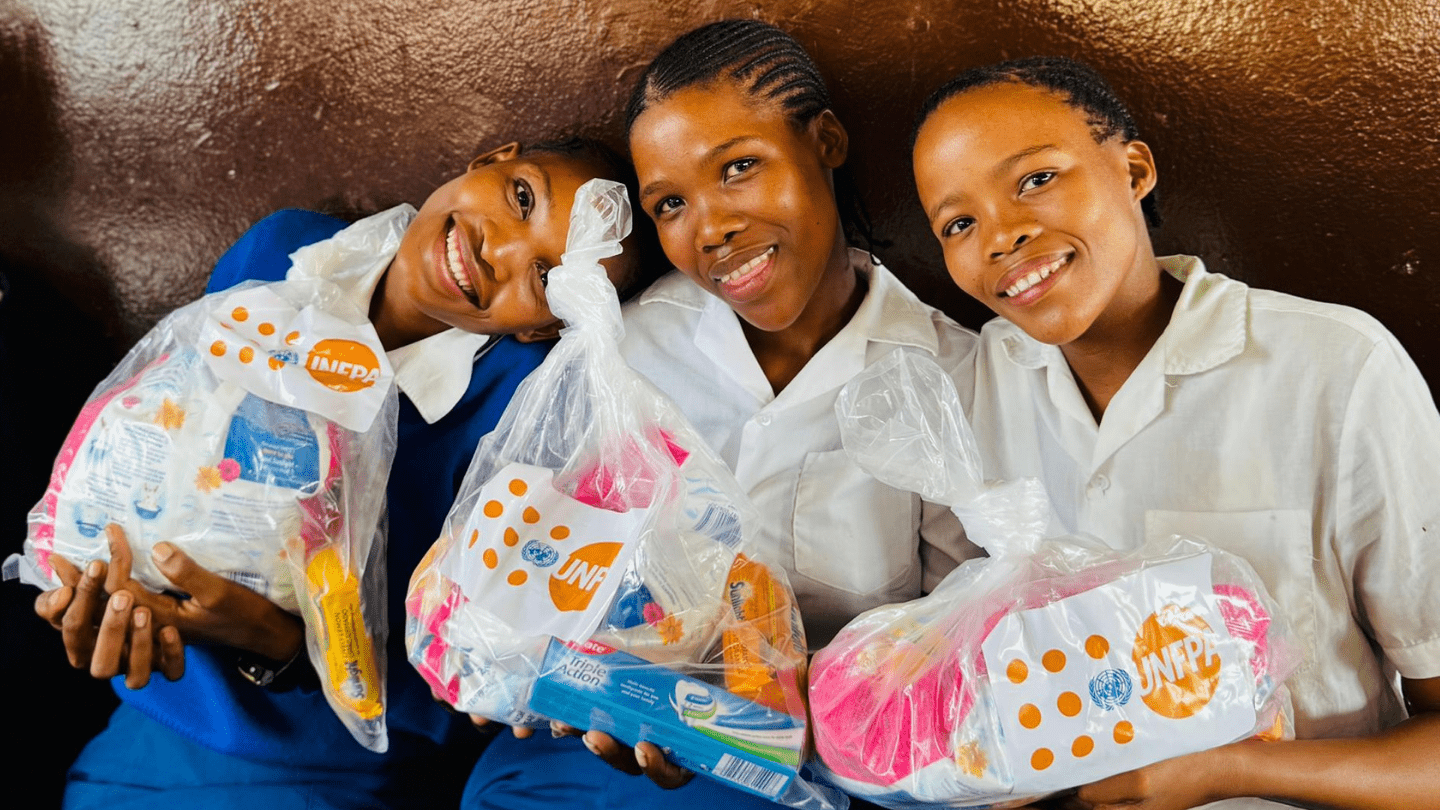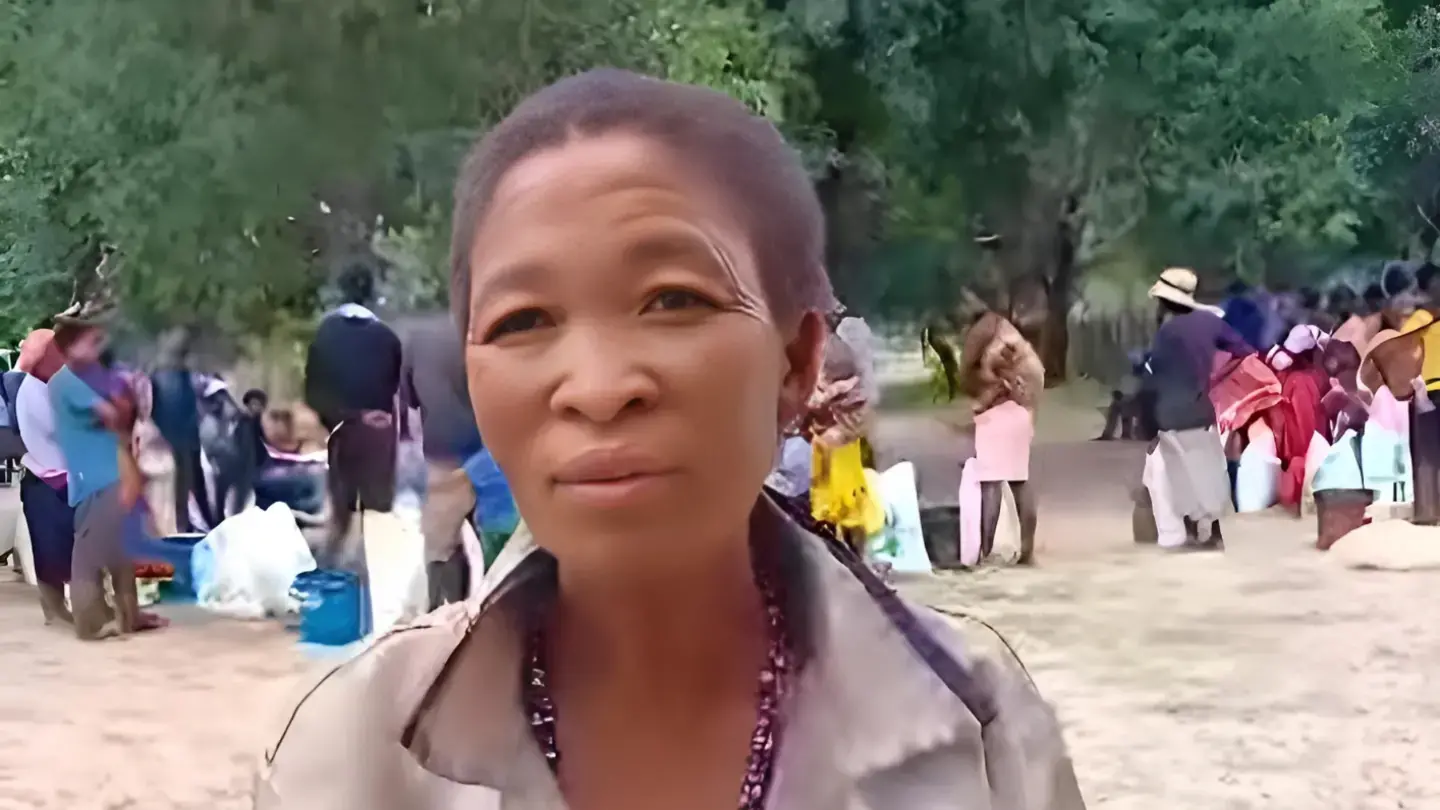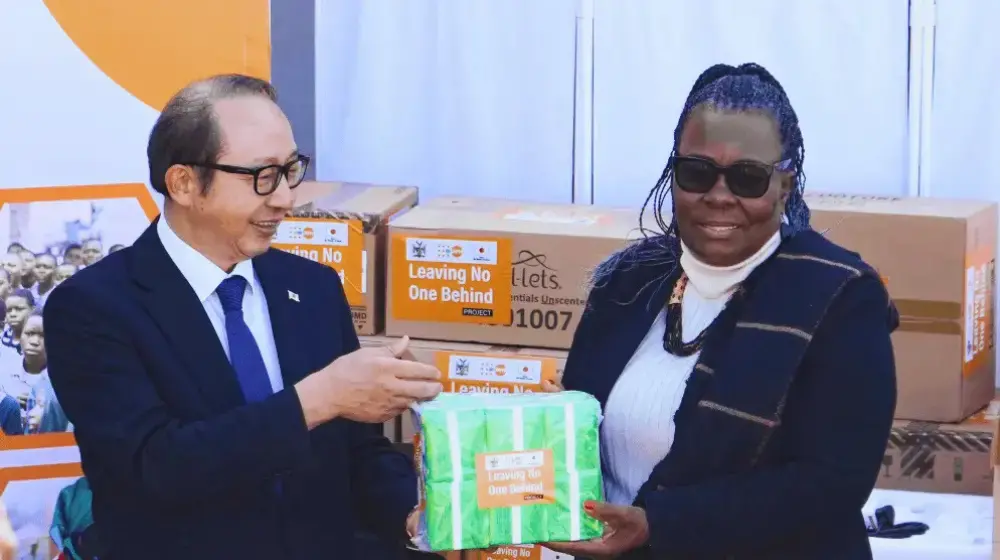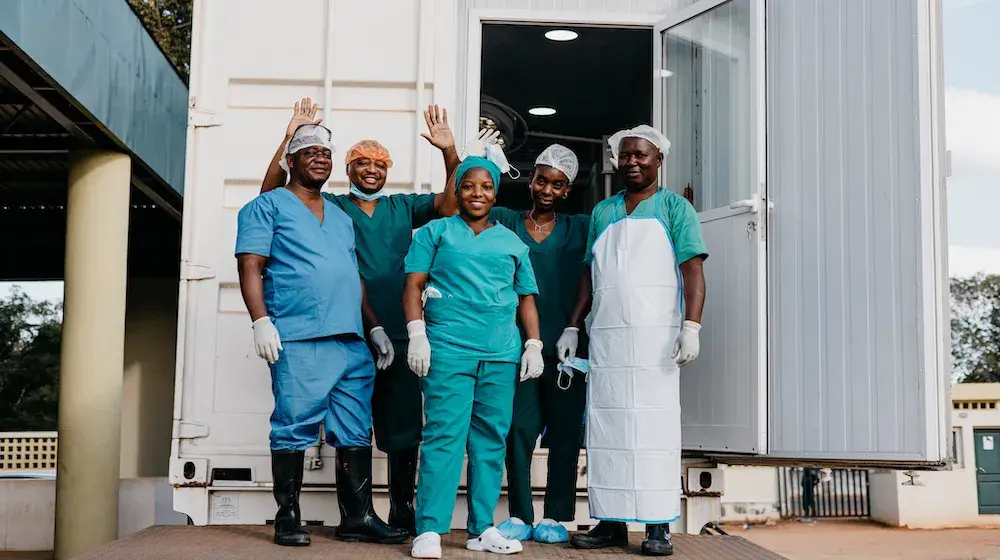I really wanted to move into the school hostel, but I didn’t have toiletries. Now, with this kit, I finally have what I need to move in.
GOBABIS / RUNDU, Namibia – During January and February 2025, the United Nations Population Fund (UNFPA) Namibia distributed dignity kits to 4,305 vulnerable individuals, including persons with disabilities, across the drought-affected regions of Kavango East, Kavango West, and Omaheke. Each dignity kit contained essential hygiene products along with information, education, and communication materials, including a comic pamphlet and the Youth Learning Passport—a booklet providing vital information on sexual and reproductive health (SRH) and gender-based violence (GBV).
Namibia is currently facing a severe drought crisis, worsened by the effects of El Niño, which has had a devastating impact on women and girls. The crisis is further intensified by economic challenges and rising unemployment, leading to widespread food insecurity. Vulnerable communities are at increased risk of malnutrition, disease, and GBV, making urgent support essential.
To help address these challenges, UNFPA, in collaboration with the World Food Programme (WFP) and UN Children's Fund (UNICEF) with funding from the UN Central Emergency Response Fund (UNCERF), is working to prevent GBV and support those affected in drought-stricken areas in Omaheke, Kavango West and Kavango East. Key efforts include:
- Providing dignity kits and food parcels to vulnerable women and girls
- Offering life skills education to empower communities
- Update/ develop referral pathways to improve access to services for GBV and Sexual exploitation and abuse.
- Supporting safe spaces including shelters and GBV Protection Units to ensure survivors receive psychosocial support
- Expanding mobile outreach services to bring SRH care closer to those in need, especially survivors of sexual and gender-based violence (SGBV)
UNFPA’s work in addressing GBV and ensuring access to SRH services is at the heart of its mission to uphold the rights, health, and dignity of women, girls and young people. By providing essential support and advocating for gender equality, UNFPA remains committed to building safer communities where women and girls can live with dignity and security, even in times of crisis.





